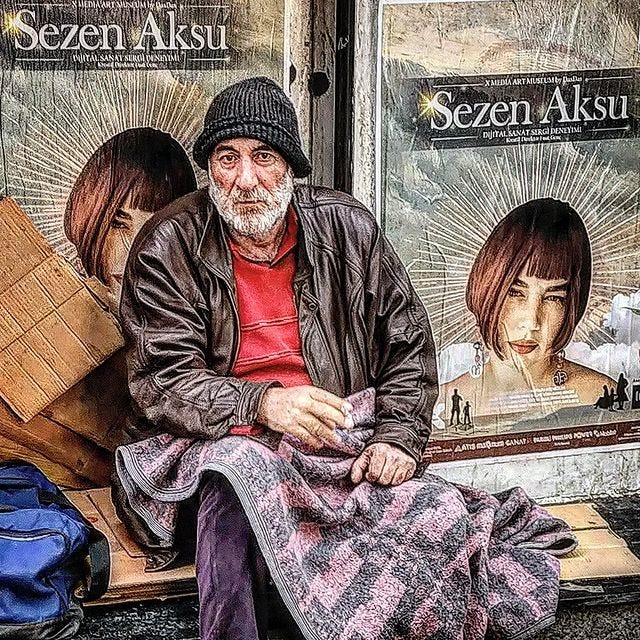I am late for the gynecologist.
Not late like, “I should have had a yearly check-up by now”, although there is that.
Late because my appointment is at 2 o’clock, but I’d convinced myself it was at 4, and it’s now 1:49 and I’m racing through the streets of Istanbul.
This gynecologist was rated by someone on Facebook as “the best gynecologist I’ve ever seen in my life”. I call to let her office know I’m late, while simultaneously trying to hail a taxi.
“Where are you going?” the driver calls out.
“Fulya,” I pant, which is about a 20 minute drive away.
“Call an Uber,” he says, and drives off.
The more people I speak to, the more I understand how difficult life is right now for anyone earning the Turkish lira.
The working week, whether a labourer or a lawyer, is at least 6 days, and for far more than 8 hours a day. Having your boss call a meeting late at night or on a Sunday afternoon is part of life. Meanwhile, inflation rose over 50% in May, with energy bills soaring by 121% and food at 92%. The majority of while collar workers in this country can’t afford to take a week’s holiday.
My friend Emily shared that she’s losing friendships she’s had for decades because the general mental health is so impacted here. I see the effects of this in the poet, too, who works for a startup. When he puts his phone down for an hour, he’s greeted by a waterfall of messages that would make me weep. A taxi driver we met last weekend told us that he works about 18 hours a day, and brings home roughly $25 Canadian for it. Because of this, his wife has just left him.
I jump on the metro, and by the time I get back up onto street level, I’m pouring sweat. It should be a 20-minute walk to the clinic, but Google maps has decided to stop working. I come from a culture where being late for a medical appointment is ethically akin to punching a small animal, so I huff up and down the steepest of hills, trying to situate the blue dot skidding all over my phone, swearing at the taxis passing me in the streets.
By a miracle, I find the gynecologist’s building.
I head into the elevator, which stops on the way up. A woman walks in in a head scarf, sunglasses, and an almost completely bandaged face. The economy here might be batshit here for locals, but Turkey still holds its own as a medical tourism hotspot for people from wealthier countries. It’s not uncommon to see noses in splints in the street, or shaved heads covered in the tiny dots of a hair transplant. This woman seems highly anxious, and bolts back out of the elevator again before the doors close. I look at my reflection in the mirror: my halo of hair frizz, mascara-ringed eyes, my shirt soaked, and wonder if I’ve scared her. I was told recently that my decision not to have botox at the age of 45 is “charming”.

The elevator doors open, and I step into a plush, carpeted hallway, nicer than something you’d see at most hotels. The waiting room of the gynaecologists office has floor-to-ceiling windows and furniture too modern to sit on. The receptionist beams at me, waves off my apologies for being late, and hands me a form to fill out.
“Marital status”, it asks.
I hate this question, especially in this country. Why does “divorced” get its own box? Maybe because it also assumes “has had children?” Am I going to be judged for not having done my womanly duties? Cringing, I tick “single” and hand the form back. Less than a minute later, the receptionist beckons me to the doctor’s office.
She is, in fact, the best gynecologist I’ve ever seen in my life.
She’s polite and funny, and doesn’t show a smidge of judgement about the state of my womb or the reasons I’m here. I’m sent to a sparkling white bathroom, and given a pair of soft hotel slippers in a plastic package and a disposable towel to wrap around me. I return to the examination room. The receptionist uses sign language to tell me how to sit and puts a gentle hand on my foot to guide me. It’s the most compassionate experience of this variety you could ask for. I have to hold myself back from hugging them all goodbye.
Also, if I were earning minimum wage in this country, it would cost the equivalent of half a month’s salary.
Back out in the street again, I notice a woman in a ripped dress sitting on the ground next to a dumpster. She’s picking stale bread buns out of a plastic bag. I wonder which box she would tick on the medical form, if she ever, in her life, could be privileged enough to visit a gynecologist. Will she die young because of this? Will anyone care? Has she had children? Was it because she never learned how not to? Where are they now and what are they doing? What chance do they stand if things in this country don’t change?
As I pass her, an arm reaches out from inside of the dumpster. It hands her a carton of juice, and disappears again back into the darkness.



